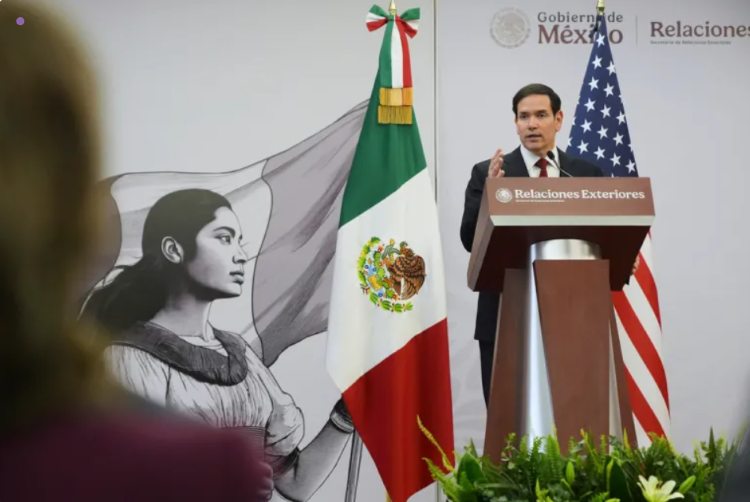(Al Jazeera Media Network) United States Secretary of State Marco Rubio has said that military attacks on alleged drug traffickers will “happen again”, brushing aside concerns over the legality of such attacks and the sovereignty of Latin American nations.
Speaking during a news conference in Mexico City on Wednesday, Rubio pledged continued security co-ordination with countries such as Mexico, but suggested the US would not hesitate to take extreme measures on its own.
His remarks, in part, were a response to President Donald Trump’s announcement that the US had blown up a vessel in the Caribbean Sea a day earlier.
Trump and Rubio identified the small boat as a drug-smuggling vessel coming from Venezuela, though no details were provided. All 11 people on board reportedly died.
Rubio framed the air strike as part of a shifting strategy in the US’s ongoing “war on drugs”.
“The United States has long — for many, many years — established intelligence that allowed us to interdict and stop drug boats. And we did that. And it doesn’t work. Interdiction doesn’t work,” Rubio said.
“What will stop them is when you blow them up, when you get rid of them.”
Rubio then explained that the attack was authorized personally by Trump. It had been in the south Caribbean Sea at the time of the attack, and Rubio said it was headed for the US.
“Instead of interdicting it, on the president’s orders, we blew it up. And it will happen again,” Rubio said. “Maybe it’s happening right now. I don’t know.”
Rubio’s visit to Mexico City comes as the Trump administration seeks close co-operation with Mexico, but its aggressive foreign policy has spurred concerns abroad.
Latin American nations have struggled to balance the need for working relations with the US and Trump’s increasingly brazen threats.
Experts say that attacks such as Tuesday’s boat bombing are likely illegal under international law, which limits military actions on vessels sailing through international waters.
Still, Rubio defended the action as necessary for protecting the wellbeing of the US.
“If you’re on a boat full of cocaine or fentanyl, whatever, headed to the United States, you’re an immediate threat to the United States,” said Rubio.
US military strikes against armed groups around the world have often depended on the idea that such groups, often tied to armed or fighting groups that represent an immediate risk to US national security. That argument has not previously been used as a pretext for military strikes on drug trafficking, deemed a criminal issue.
But Trump’s second inauguration has marked a shift in that approach.
Since taking office in January, Trump has pushed for emergency powers on the premise that Latin American gangs and other criminal groups constitute an “invasion” on US soil.
He has also designated many such groups as “foreign terrorist organizations”.
Not all countries in the region are apprehensive as the US takes on an increasingly militarized approach to criminal groups.
“I, along with most of the country, am happy that the US naval deployment is having success in their mission,” Trinidad and Tobago’s Prime Minister Kamla Persad-Bissessar said in a statement on Tuesday.
“The pain and suffering the cartels have inflicted on our nation is immense. I have no sympathy for traffickers; the US military should kill them all violently.”


